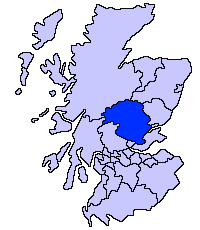A scheduled monument in Scotland is a nationally important archaeological site or monument which is given legal protection by being placed on a list (or "schedule") maintained by Historic Environment Scotland. The aim of scheduling is to preserve the country's most significant sites and monuments as far as possible in the form in which they have been inherited.[1]

The process of scheduling is governed by the Ancient Monuments and Archaeological Areas Act 1979, which aims "to make provision for the investigation, preservation and recording of matters of archaeological or historical interest". The term "scheduled monument" can apply to the whole range of archaeological sites which have been deliberately constructed by human activity but are not always visible above ground. They range from prehistoric standing stones and burial sites, through Roman remains and medieval structures such as castles and monasteries, to later structures such as industrial sites and buildings constructed for the World Wars. Some buildings or structures which were both scheduled and listed have had their listing designations removed to reduce the duplication.
In 2017 there were 8238 scheduled monuments in Scotland.
Notable scheduled monuments in Perth and Kinross
edit| Name | Location | Description | Ref No | Image |
|---|---|---|---|---|
| Arnot Tower | Scotlandwell | Gutted 16th-century tower-house | SM996 | |
| Ardoch Roman Fort | Ardoch | Remains of a complex Roman military site | SM1601 | |
| Coupar Angus Abbey gatehouse | Coupar Angus | Ruined gatehouse to medieval Cistercian abbey | SM1629 | |
| Black Castle of Moulin | Moulin | Ruined castle | SM1636 | |
| Bertha Roman Fort | Redgorton | Traces of former Roman Fort of bank of River Tay | SM2403 | |
| Dundurn Fort | Comrie | Prehistoric Pictish hillfort | SM2885 | |
| Inchaffray Abbey | Madderty | Slight remains of monastic buildings | SM3200 | |
| Croft Moraig Stone Circle | Near Aberfeldy | Prehistoric stone circle | SM5024 | |
| Comrie Castle | Dull | Small defensive keep on the South bank of the River Lyon | SM5507 | |
| Coupar Angus Abbey precincts | Coupar Angus | Subterranean remains of large abbey complex | SM5772 | |
| Abernethy Round Tower and Pictish Stone | Abernethy, Perth and Kinross | Medieval round tower with Pictish symbol stone at base | SM90005 | |
| Balvaird Castle | Abernethy, Perth and Kinross | Ruined 15th-century L-plan tower-house | SM90027 | |
| Burleigh Castle | Orwell | Medieval tower-house | SM90045 | |
| Dunkeld Cathedral | Dunkeld | Nave and tower of ruined medieval cathedral | SM90119 | |
| Huntingtower Castle | Tibbermore | Connected 15th- and 16th-century towers | SM90164 | |
| Kinnoull Church, remains of church and churchyard, Perth | Kinnoull | Remains of a 16th-century church, with monument to George Hay, 1st Earl of Kinnoull | SM6627 | |
| Lochleven Castle | Kinross | Remains of castle on Castle Island in Loch Leven | SM90204 | |
| Tullibardine Chapel | Tullibardine | 16th-century chapel | SM90308 | |
| Innerpeffray Collegiate Church | Innerpeffray | Early-16th-century church[2] | SM90170 | |
| Elcho Castle | Perth | Castle | SM90140 |
See also
editReferences
edit- ^ "What is scheduling?". Historic Environment Scotland. Retrieved 2 September 2017.
- ^ "Innerpeffray Collegiate Church Of The Blessed Virgin: Listed Building Report". Historic Scotland.